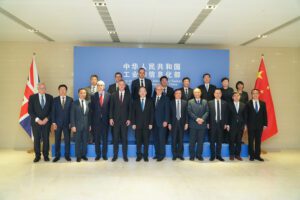Business secretary Jonathan Reynolds has announced that the UK is to launch an impact assessment with UK businesses on the impact of imposing retaliatory measures on the US.
On Wednesday US President Donald Trump announced his “liberation day” tariff packages, with a 10% tariff on all U.K. imports. These tariffs mark what Primer Minister Keir Starmer describes as “the beginning of a new era” in global trade.
Reynolds maintains a UK-US trade deal is still possible and the most “favourable” outcome but conceded that retaliatory measures now need to be considered with the likelihood of a deal seemingly more distant.
Speaking to the house yesterday afternoon, Reynolds said: “To enable the UK to have every option open to us in future, I am today launching a request for input on the implications for British businesses of possible retaliatory action.”
There are still hopes inside the government that the U.K. can avoid the tariff charges. During yesterday’s PMQ’s, Starmer maintained that talks remained “constructive” between US and U.K. officials. The UK can take encouragement that the U.K. saw the lowest flat tariff imposed, with the EU seeing a 20% imposed on its exports to the US.
The lower tariff imposed on the UK justified Starmer’s approach to Trump, a No 10 source told The Guardian “a lower levy than others vindicate our approach. It matters because the difference between 10% and 20% is thousands of jobs.”
Labour is keen to avoid a trade war with the US as they are the UK’s largest export partner, with economist forecasting the tariffs will likely add to the UK’s sluggish growth and result in job losses. The Institute for Public Policy Research estimates that 25,000 jobs in the UK car manufacturing sector are now at risk because of the tariffs.
The tariffs are likely to add further inflationary pressure and weaken the UK’s GDP growth. OBR member David Miles estimates tariffs could knock between 0.6% to 1% off the UK’s GDP. This will add further woes to the economic picture inside the UK, with the OBR already downgrading its growth projection for the U.K. economy from 2% to 1% in 2025 last week.




